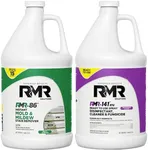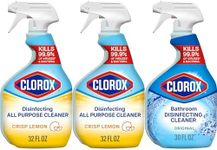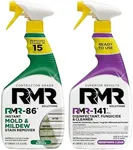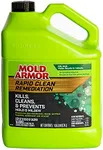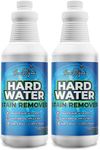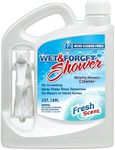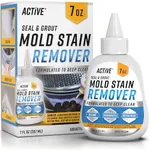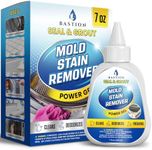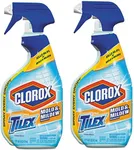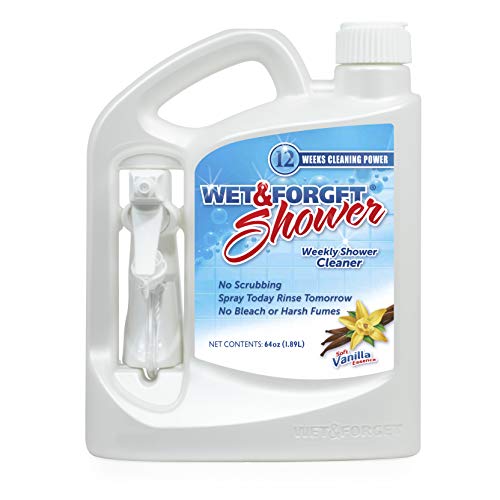Buying Guide for the Best Mildew Cleaner For Shower
Choosing the right mildew cleaner for your shower is essential to maintain a clean and healthy bathroom environment. Mildew can cause unpleasant odors and potential health issues, so it's important to select a product that effectively removes mildew without damaging your shower surfaces. When picking a mildew cleaner, consider the following key specifications to ensure you get the best fit for your needs.Active IngredientsActive ingredients are the chemicals in the cleaner that work to remove mildew. This spec is important because it determines the effectiveness of the cleaner. Common active ingredients include bleach, hydrogen peroxide, and natural enzymes. Bleach-based cleaners are very effective but can be harsh on surfaces and have strong fumes. Hydrogen peroxide is a good alternative that is less harsh and has a milder smell. Natural enzyme-based cleaners are eco-friendly and safe for most surfaces but may require more time to work. Choose an active ingredient based on your sensitivity to chemicals and the type of surface you are cleaning.
Surface CompatibilitySurface compatibility refers to the types of surfaces the cleaner can be safely used on. This is important to prevent damage to your shower tiles, grout, glass, or other materials. Cleaners are often labeled for use on specific surfaces like ceramic, porcelain, or natural stone. If you have a variety of surfaces in your shower, look for a multi-surface cleaner. Always check the label to ensure the cleaner is safe for your specific shower materials to avoid any potential damage.
Application MethodThe application method describes how the cleaner is applied to the mildew. This can include sprays, foams, gels, or wipes. Sprays are convenient and easy to use, covering large areas quickly. Foams can cling to vertical surfaces better, providing more contact time with the mildew. Gels are great for targeted cleaning and can be left on stubborn spots for longer periods. Wipes are handy for quick touch-ups and small areas. Choose an application method that suits the size of the area you need to clean and your personal preference for ease of use.
Contact TimeContact time is the amount of time the cleaner needs to sit on the mildew before being rinsed or wiped away. This is important because it affects the cleaner's effectiveness. Short contact times (a few minutes) are convenient for quick cleaning sessions, while longer contact times (up to an hour) may be necessary for heavy mildew buildup. Consider how much time you can dedicate to cleaning and the severity of the mildew problem when choosing a cleaner with an appropriate contact time.
ScentThe scent of the cleaner can impact your cleaning experience, especially in a confined space like a shower. Some cleaners have strong chemical odors, while others are formulated with pleasant or neutral scents. If you are sensitive to strong smells or prefer a more pleasant cleaning experience, look for cleaners labeled as having a fresh or mild scent. Keep in mind that some scented cleaners may contain additional chemicals, so balance your preference for scent with any sensitivities you may have.
Eco-FriendlinessEco-friendliness refers to the environmental impact of the cleaner. This is important for those who are environmentally conscious and want to reduce their ecological footprint. Eco-friendly cleaners are typically biodegradable, non-toxic, and free from harsh chemicals. They are safer for the environment and often safer for your health. If sustainability is a priority for you, look for cleaners with eco-friendly certifications or labels indicating they are made from natural ingredients.

